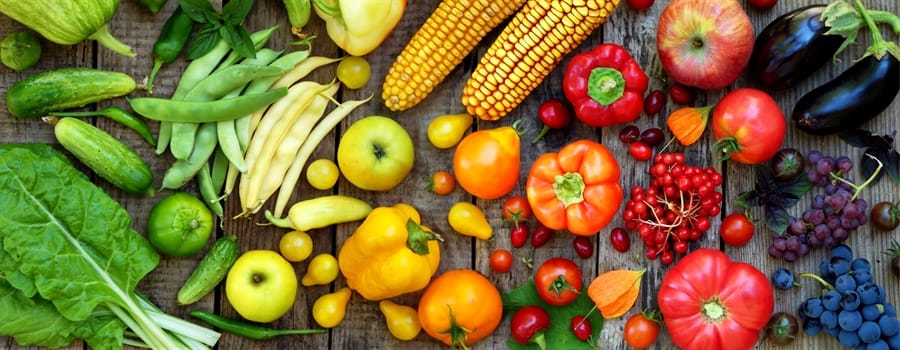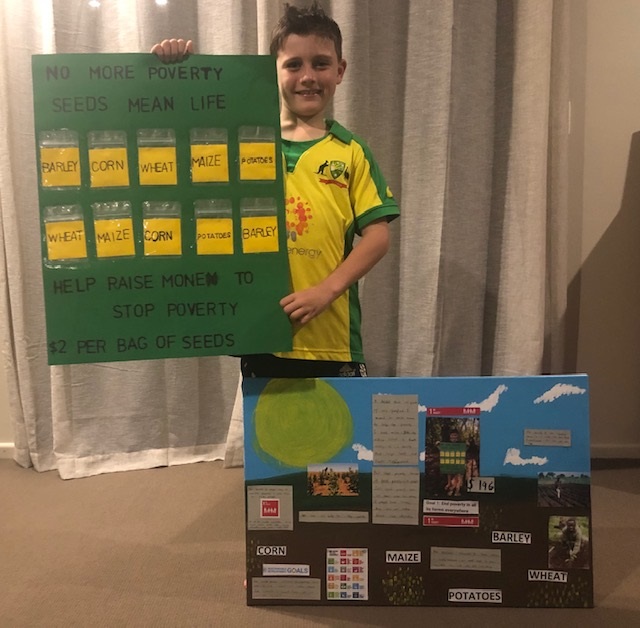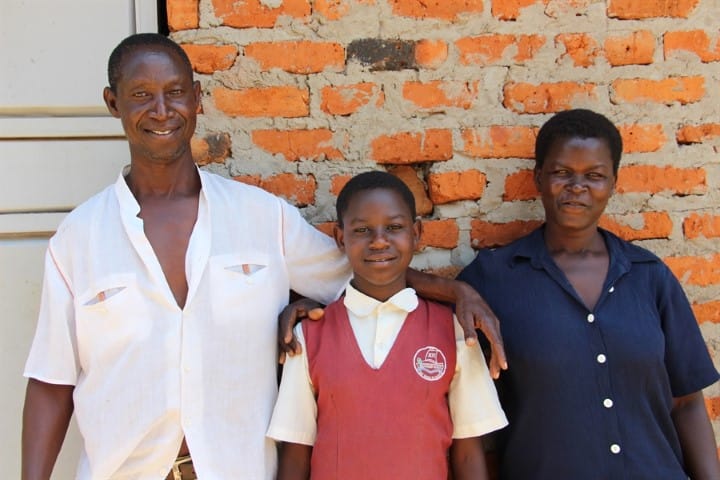The Life You Can Save’s blog usually talks about the challenge of extreme poverty and best ways to combat it. So what’s food got to do with it?
As it turns out, our food choices have a huge impact across a range of areas, from our own health to animal rights, exploitation of workers, climate change, sustainability and global food justice.
You’ll probably be most familiar with the impact our eating has on our own bodies. After all, the media is full of advice for healthy nutrition from all sorts of angles – weight loss, disease, fad diets, superfoods and so on. The dangers of consuming unhealthy foods range from issues related to the meat, dairy and egg industries – mad cow disease, use of hormones and antibiotics, dioxin found in eggs, to just name a few – to cancer and other diseases.

Then there’s the impact on animal welfare in meat and dairy production as well as in live exports. While there’s usually less of a debate where fish are concerned—even though there probably should be—overfishing is a global problem, leading to shifts in the oceans’ ecosystems that may be irreversible. Related issues include job losses, especially in smaller-scale fishing operations, as well as food security for subsistence fishermen.
Next up, as you are undoubtedly aware, people in countries that produce many of our foodstuffs are often exploited, working under hazardous conditions and being paid extremely low wages. Many industries use child labour, for example in the production of cocoa and shrimp. Workers are also exploited right in our midst, such as in seasonal fruit picking and in the meat, egg and dairy industries.
Another concern is the environmental consequences of our current food system – be it excessive water consumption in meat production, over-fertilisation of soils, deforestation for purposes of growing animal feed or CO2 emissions from transporting tropical and non-seasonal fruits and vegetables. The meat and dairy industries (there’s 246 million dairy cows on the planet alone!) also contribute to climate change because of the methane and nitrous oxide released by animal waste.

One Acre Fund
Exploitation and low wages compound the effects of climate change in poorer countries, and poor harvests and rising food prices have a huge impact on living conditions for the poor. The World Fair Trade Organization aims to combat some of these effects by supporting small producers and fair wages and prices, lobbying against forced labour, and establishing health and safety standards. They also use sustainably managed and locally sourced raw materials wherever possible, so look for the Fair Trade logo wherever you can. Experts also propose alleviating the impact of rising food prices through “assistance to smallholder farmers and nutritional support for mothers and children.” The Life You Can Save recommends charities that do exceptional work in these areas – for more information, see our Cause pages for Agriculture & Farming and Hunger and Nutrition.
On a related front are a variety of problems related to monocultures, ranging from lasting effects on soil quality to making countries almost completely dependent on growing one or two foodstuffs for export, exposing them to severe impacts of changing prices on the global market. In addition, some staples are actually in danger of becoming extinct. For example, a lack of diversity in the types of bananas we grow – we essentially grow the same kind of banana all over the world – has led to a fungus threatening global banana production. In many places, bananas are critical for food security and income generation.
If all this sounds a little overwhelming, never fear – consumer power is real, and there are lots of things you can do!
So what can you do?
The following list is by no means comprehensive but offers a few easy places to start.
Make smart food choices …
-
Buy local and/or organic produce as often as you can. If that’s hard to identify or find at your local shops, try having a weekly box of – often organic – fruits and vegetables delivered, or visit a local farmers’ market.
-
Buy according to season. This also means that what you buy will be cheaper, in many cases considerably so.
-
Avoid overly processed foods. They’re not good for you anyway and frequently contain palm oil, which – unless RSPO-certified – contributes to deforestation and, for example in Indonesia, to a loss of habitat for orangutans.
-
Buy certified Fair Trade products. You’ll find that quite often they’re not more expensive than non-fair-trade products.
-
Eat less meat. Historically, meat was – and in many cultures still is – rare precisely because of its price, so traditional dishes in many cultures often don’t include any meat at all. A great cookbook with authentic, simple and delicious recipes from all over the world is Troth Wells’ Global Vegetarian Cooking.
-
Consider going vegetarian or vegan. If this seems daunting, start by having one or two vegetarian or vegan days per week. Most likely, you’ll find you’ll be eating a greater variety of foods and be more creative when cooking. If you hate cooking, buy a blender and try raw foods – there’s lots of yummy recipes out there that won’t leave you hungry. A great one is Ani’s Raw Food Kitchen by Ani Phyo.
… and save money at the same time!

-
If you’re shopping on a budget, try buying in bulk, replacing fresh produce with frozen goods where that makes sense (smoothies or stir fries, for example) or buying generic brand organic food at the supermarket, which is often no more expensive than non-organic brand-name food. Asian supermarkets are often a good option for cheaper tofu or tempeh, herbs and vegetables as well as bulk packets of rice and the like. In other good news, Amazon is planning to reduce prices at WholeFoods.
-
Reduce food waste. This one really is a no-brainer: It’ll produce less waste, it’ll save on everything that’s involved in producing and shipping your food, from fertiliser to CO2 emissions – and it’ll save you money!
-
If you’re not sure how to do vegetarian or vegan on a budget, check out the ideas at The Penny Hoarder, Plant Based on a Budget, I Love Vegan or No Meat Athlete. Googling will also come up with heaps more!
-
Join a local food justice group or community garden if you enjoy working with your hands. You’ll also get to meet a great bunch of people!
Get the low-down on the issues
-
If you eat fish, make sure you’re familiar with a list of eco-friendly fish so you can choose accordingly.
-
If you want to dig deeper, have a look at Peter Singer and Jim Mason’s The Ethics of What We Eat. Or go straight to the must-read classic: Peter Singer’s “Animal Liberation”
-
Jim Mason also has additional suggestions on his website.
-
If you’d like to further contribute to reducing animal suffering, check out Animal Charity Evaluators for additional information and organisations to support.
And share any other great ideas you may have in the comments!
Most of the above aren’t rocket science, but given that we live in an age of rampant consumerism where advertising and marketing are doing their best to make us buy things that aren’t good for us, they can be easy to forget or disregard. So if you, like many people, find yourself going back to old habits despite your best intentions, remember:
-
Take things one step at a time.
-
Follow this simple piece of advice from the paleo community: As a rule of thumb, try to stick to the fresh produce section in the supermarket.
-
To do the most good at home and abroad, buy locally and give globally.
You can obviously adjust the “paleo” rule as needed – for example, since I’m not paleo, I do buy beans, pasta and rice from the aisles – but it’s a good guideline for the sort of foods you should be eating most of. And if some of the benefits of eating more consciously seem a bit abstract to you, at least your body will thank you.



